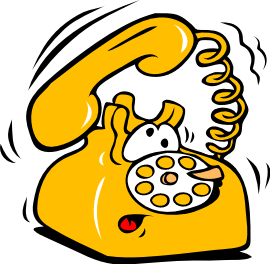Homophones (grammar)

Homophones are words that sound or look like other words with some other meaning. Or, on the other hand, words which have nothing to do with each other but are as hard to tell apart as identical twins sound asleep on two identical twin Beds - never the twin shall meet - making real cute snooring sounds just before you join them.
Will homophones have staying power? Only time will tell.
Now that that's out of the way, let's get to the real story, shall we?
Homophones
Talk talk talk, they talk all day long and you can't get them to shut up. Conversations like "Did you see Chloe on 'Fashion Street' last night? Oooooooooooo, scrumpcious delumpscious!" clog the telephone waves and hard lines and don't get me started about the innernest traffic. Gay never had it so good, and it's taking advantage of it.
Blow me? That's about the most common two-word phrase said aloud over the phone nowadays. Never "Let's go to dinner and a movie", no, it's "Blow me. Come on over and blow me". Where did all the long-distance romance go anyway? Homos on the phone just can't do anything but cry about their last, current, and next relationships - all occurring within a 24-hour period if they've got something on the ball (most literally). The homophone makes this possible, as a homo can be done with one encounter, pick up his ihomophone, and be on his way to the next fresh lad before pulling up his pants.
Invented
The homophone was invented by Alexander Graham Bell, a closeted electronic scientist from the 19th century - which sounds really old now but they were painting the world fabulous by then. In 1876 Alexander Graham Bell put together the telephone from wires, skullduggery, and pizazz. After that first historical call to his assistant - "Mr. Watson, come here, I want you" - Watson, who had heard that phrase so many times before, came there and blew him.
This first use of the homophone was duplicated almost daily by Bell, a ole randy-boy mad scientist who lived the good life of science, sex, and what passed for Rock n' Roll in the late 1800s. By inventing voice transmission, Bell allowed veterans of icky spats like the U.S. Civil War, or the War of 1812 - the people who had strategized with the hunk Abe Lincoln and the closet-case Napolean, or with the inventors who were there at the dawn of electricity, steam engines, or the harnessing of photons - to discourse weighty topics smarty-pants-style for hours at a time. And to have phone sex.
A fun fact: Bell once made limited edition homophones for all his friends down at the riverbank and the high weeds back in the public land there, and he made them in just way too many colors. Shiek!
Homos got the hang of balancing-on-the-wire rather quickly, as the homophone and its beard, the phone, spread far and wide faster and farther and wider than ducky can tickle. While the gen pop was still figuring out how to get someone on the other end of the line by spinning a handle or poking their finger into a hole, homos were juggling three calls at once and picking up a few more noobs by surprise random fish lines. Telephones and homophones existed side-by-side for several decades before the average person even knew what a homo was or where to look for one.
The Yellow Pages
Give it to the young meow, but in 1904 when homos were all the rage in Paris and down on the farm, they still had to have a way of finding or remembering names without cramping their "writing" hand. So Pierre La Crosse - love how the name rolls off the tongue! - thought up what he called the "Yellow Pages" in honor of the sweet Chinese things who paged the clientele at the ritzy weekend haunts where Pierre and the boys would troll. Pierre had to find a way to keep it all straight (Homophone (grammar)), so he decided to publish the names and addresses of all the homos in the whole world, or the whole city, or wherever the gang gathered for mint shakes and goose feather turnsleeves. He then sold these naughty lists to straights and homos alike, making money hand over fist (kinky stevens take note!).
The Yellow Pages are still in use, with straights never guessing the secret codes in the book. They still think those full pagers for the local dry cleaners or the hottest pizza place in town are exactly what they seem. Of course each of these page has small-print symbols along the edge which tell the astute lurker what the owner likes, how long they go on for, bottom top or the ever-popular saucy slanty sideways, and when to dial them up for best energy levels and blowdart functions. As Pierre always said with a smile and a semi-dark chocolate atop his infamous ruffled pillow, "Let your fingers do the walking, darling."
What a squish he is: Wars and rumors of wars
Ruffle the feathers of the people and they are bound to growl. In the 20th Century lots of wars bothered just everyone, so they got on their "horn" to complain about the blood and gore and faux misunderstandings in high places. Homos glazed hints and rumors of hints in their neighborhood, and then, to find out where the bad boys ruled and what decisions they'd made about who would die for which money man, they used their homophones to separate wheat from chaff and corn from the cob (sharing).
Eventually lines were laid across the muscluar seabeds from land to hardy land, and homos and skirt-chasers could now play international spin-the-bottle and talk to their counterparts in other countries. This expanded the range of their trolling and information engulf, so even as high-boy fister-fights raged during the silly deadly seasons loud enough to almost distract the crew from joybumps and fashion, homos continued to talk and talk and talk while starter wars stirred dust and sinew all over the place. Some of that stuff was just so difficult to get out of the scarves and shoes, no end to the nuisance of these pickle battles.
Homophones groovin', hot things sizzlin'!
The big wars gave way to nothing-to-worry-about darling little proxy skirmishes as guts and glory were given tinier stages to prance upon. Their range shrunk down from oceans and continents to jungles and rivers. Korea and 'Nam went off-Broadway and turned the spotlight over to those twin cute sisters, the Fauklands and Grenada. Evenutally they didn't even get jungles and rivers, they got to proxy war in sand. Sometimes desert sand, sometimes mountain sand, sometimes just in sandstorms. Soldiers who loved or even liked sand were the lucky ones.
Yet even as the decades flowed by like designer water, homo beatniks, homo hippies, disco tramps, and the grungy strong-ponies all still used the old Alexander Bell technology to grow their freedom. Before they could turn around and yell "Sally!" they were able to flash more and more talent over homophones at homes, offices, and playgrounds. But they still couldn't glitter vocal on the street. They didn't even know what they were missing, although the techfags had an idea there was something big on the horizon. During this time it got so crinkly that homos could be homos in public, and no longer needed to "quiet it down in there" in the bushes and the out-backer areas of nude beaches, where boys got sand in places they didn't even know that Mum Nature had tucked places.
Somewhere along this Yellow Brick Road, push buttons replaced dials on all but throwback plushy homophones. Manicured fingers could now dip into the push pool and dial anywhere wires could reach. Things like faxes soon came along, displaying still-pictures of what miffed looks like, and you could send the newest boy book over one of these miracles in less than two hours. Then message machines popped in for the next spin, machines which gobbled up the sobs of remorse or high-pitched giggles of stranger-sex while the person receiving the call, the catcher, was otherwise prepccupied with their flavor of the day. Then at the "receivers pleasure" (tell about it sister!) they could retieve their messages and play them back entirely at their own beck and call. This, once again, changed everything.
Then, a little later in their future and quickly receding in our past, winged satellites flinged homo voices way above the earth and back down again, from one homophone to the other in an instant, flooding the minds-eye with new ideas like baby peacocks learning to adorn their territory. Adapting quickly, the techno lizzies handglided along smartly as they efficiently shaped and used the wonders of this new age perpetual vocalization snap-o-rama. What they didn't know is that the Dorothy parade hadn't even started yet!
Brave New World
Hot on the high heeled - you must tell me where... - miracle of faxes were wonderfully magical portable shiny things called cell phones. To the community they were like pieces of eight dropped in your lap that you could talk into and sparkle discourse. From then on, wherever the buffalo roamed, there you were. If Sugar Daddy tried to run away he was just two seconds upwind of speed dial, and if he still ran like a silly-sister goose then the chip could track him. Still not snuggly enough for the fast hunters, homophones went twenty-four speed with tweeters and ihomophones, and then came along those little cameras which catch the boys in the most compromising of positions ("How do my hair and tush look?"). As each new technology came about, and as it always has been, chronic exposure became the name of the game and quirky fantasy action the grok of the home crew.
Yet the ball Bell got rolling is a long way from over. Still coming up the rear and ready to break wild on the outside in the near future are ihomophones and thermophones and phones the size of calling cards which will have things attached to them to make you jiggle involuntarily when that special he is calling. These ihopho's of the future will be filled with brand spanking new features and apps and carry-ons and bio-implants and be so attuned to the culture that they will introduce everyone on earth to a wide-open and open-wide world of specialties and shortcake receipes in a ballfaced nanosecond (Cream!). Then, of course, there will be those new iAirHomophones where there is nothing physical to carry around, you just talk and talk and talk into the air, gab gab gab, all day long. Then, much later but sooner than Paris thinks, time and space itself will facilitate a total ibonding experience via quantum iqhomophones as your private wrap-around life with the beauties will expand beyond known physics and meld you into the cushy cradle of iCher itself.
The man who bowled this frame down the lane and scored a strike, Alexander Graham Bell, would have turned sooooo Green with sciency envy if he'd just decided to stick around for another century or so, the silly dusty pouty baby. "Mr. Watson, come here, I want you" indeed!
As you can...
...now plainly see, homophonebic words can be words spelled the same as another word, but with the meaning all backwards. They can also be just plain words which sound the same yet conjur up nothing to do with each other whatsoever.
And if inside I turn gay by tomorrow night because of you then, then, then, I'll just, stomp my foot!.
See also
| Featured version: 14 March 2012 | |
| This article has been featured on the main page. — You can vote for or nominate your favourite articles at Uncyclopedia:VFH. | |




